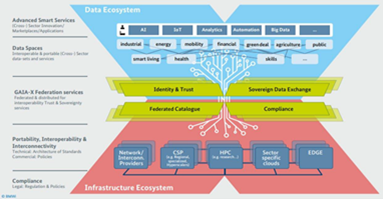Data Centre Software for Smarter Operations
Data Centre Operations: Optimising Infrastructure for Performance and Reliability
Data Centre Software for Smarter Operations
Data Centres
Infrastructure Management for Modern Data Centres
News in Cloud Computing & Data Storage
ABB information systems selects Google cloud to expand its cloud footprint
Data
Data Centre Infrastructure News & Trends
Data Centre Operations: Optimising Infrastructure for Performance and Reliability
Data Centre Software for Smarter Operations
Infrastructure Management for Modern Data Centres
Scalable Network Attached Solutions for Modern Infrastructure
Aruba formalises its GAIA-X status as a Day-1 member
Data Centre Infrastructure News & Trends
Data Centre Operations: Optimising Infrastructure for Performance and Reliability
Data Centre Software for Smarter Operations
BittWare Launches IA-840F and Support for oneAPI Unified Software Programming Environment
Data Centre Operations: Optimising Infrastructure for Performance and Reliability
Data Centre Security: Protecting Infrastructure from Physical and Cyber Threats
Data Centre Software for Smarter Operations
Enterprise Network Infrastructure: Design, Performance & Security
Acronis expands its reach in cyber protection, joining the MPC Alliance
Data Centre Operations: Optimising Infrastructure for Performance and Reliability
Data Centre Software for Smarter Operations
Scalable Network Attached Solutions for Modern Infrastructure
Increased responsibilities are pushing IT to breaking point
Data
Data Centre Operations: Optimising Infrastructure for Performance and Reliability
Data Centre Software for Smarter Operations
Enterprise Network Infrastructure: Design, Performance & Security
Infrastructure Management for Modern Data Centres
Scalable Network Attached Solutions for Modern Infrastructure
Kao Data Partners with Vorboss, offering Specialist Low-Latency Connectivity for Fintech
Artificial Intelligence in Data Centre Operations
Data
Data Centre Operations: Optimising Infrastructure for Performance and Reliability
Data Centre Security: Protecting Infrastructure from Physical and Cyber Threats
Data Centre Software for Smarter Operations
Data Privacy Insights for Secure Digital Operations
Infrastructure Management for Modern Data Centres
Data and HR experts form pioneering ethics board to tackle misuse of AI
Data Centre Operations: Optimising Infrastructure for Performance and Reliability
Data Centre Software for Smarter Operations
Data Centres
Infrastructure Management for Modern Data Centres
Scalable Network Attached Solutions for Modern Infrastructure
Schneider Electric and Elite Partner APT Deliver Data Centre Digital Transformation for Newcastle City Council
Data Centre Operations: Optimising Infrastructure for Performance and Reliability
Data Centre Software for Smarter Operations
Infrastructure Management for Modern Data Centres
Innovations in Data Center Power and Cooling Solutions
Asperitas wins deal for immersion cooling for Crédit Agricole
Data Centre Operations: Optimising Infrastructure for Performance and Reliability
Data Centre Software for Smarter Operations
Vertiv introduces monitoring solution for small and medium-sized edge data centres










